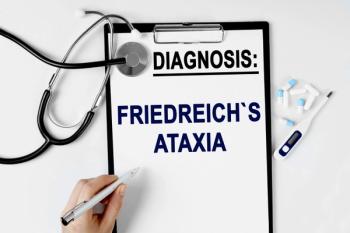
Lexeo Therapeutics' LX2006 Shows Promise in Treating Friedreich's Ataxia Cardiomyopathy
Given the lack of approved treatments for FA cardiomyopathy, LX2006's potential could represent a breakthrough for patients suffering from a disease characterized by severe cardiac complications.
In what might be a potential breakthrough for a significant unmet need, Lexeo Therapeutics announced last month that their gene therapy candidate, LX2006, had achieved positive interim
Given the lack of approved treatments for FA cardiomyopathy, LX2006's potential could represent a breakthrough for patients suffering from a disease characterized by severe cardiac complications.
FA is an exceptionally rare, autosomal recessive disease caused by a mutation in the frataxin gene. The absence of an approved therapy that can slow down the progression of cardiomyopathy in FA, which is responsible for a significant portion of FA-related deaths, underscores the urgent need for new treatments.
FA cardiomyopathy is usually identified by an increase in left ventricular mass index (LVMI) that can lead to heart failure. Elevated LVMI in adults with FA cardiomyopathy is a sign of left ventricular hypertrophy and is associated with mortality in various cardiovascular conditions, including FA cardiomyopathy.
Given as a one-time infusion, LX2006 is an adeno-associated virus gene therapy that delivers a functional frataxin gene to cardiac cells to promote the production of normal frataxin protein and restore mitochondrial function in heart muscle cells. Without a working copy of the frataxin gene, the heart is unable to sustain energy production, and it cannot work correctly.
The interim results shared from the SUNRISE-FA Phase 1/2 clinical trial and the Weill Cornell Medicine investigator-initiated
Data from eight participants with more than six months of follow-up demonstrated an average reduction in LVMI of 11.4% at 12 months and 18.3% at 18 months. Seventy-five percent of participants with elevated LVMI at the start of the study experienced a reduction in LVMI of over 10% at 12 months.Most participants showed sustained and consistent improvements in other necessary measures of cardiac health, such as left ventricular wall thickness and troponin I, at 12 months.
The restoration of frataxin protein expression observed in cardiac biopsies further underscores the therapeutic potential of LX2006. As the disease progresses with low levels of frataxin leading to heart failure, restoring this protein could be crucial for improving cardiac function and enhancing the overall quality of life for affected individuals.
The fact that LX2006 has received Rare Pediatric Disease designation, Fast Track designation, and Orphan Drug designation from the FDA indicates a strong regulatory interest and support for this treatment. These designations can facilitate a more expedited development and review process, potentially leading to accelerated approval.
Despite the promising data, it is essential to acknowledge the inherent risks and uncertainties associated with clinical trials and the development of new therapies. Lexeo's cautionary note regarding forward-looking statements underscores the unpredictable nature of drug development, where new challenges could arise that may affect trial outcomes or regulatory processes.
Although the initial results are promising, LX2006's ultimate success will depend on ongoing safety evaluations, long-term efficacy data, and the ability to navigate the regulatory landscape.
Lexeo Therapeutics' interim clinical data for LX2006 represents a potentially transformative advancement in treating Friedreich Ataxia cardiomyopathy. While the early results are encouraging, ongoing clinical evaluations and regulatory engagements will be vital in determining the future of this promising gene therapy.
Newsletter
Get the latest industry news, event updates, and more from Managed healthcare Executive.























